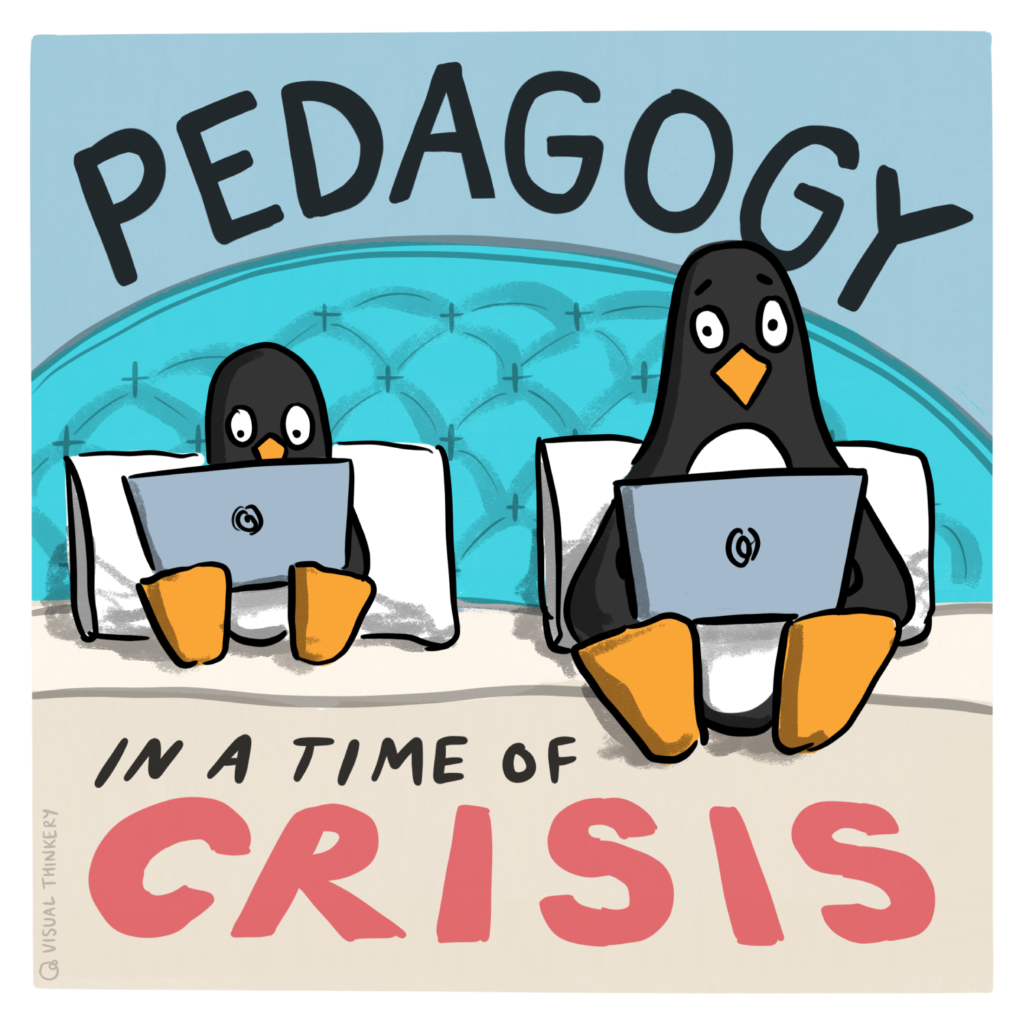
The Pedagogy of Crisis
One of the themes of the OER22 conference was “Pedagogy of Crisis” (I think this was Rob Farrow’s suggestion). I’ve been thinking a lot about that recently. I posted about the cost of living crisis, which follows the pandemic crisis, which came hot on the heels of the Brexit (or Trump) crisis, which arose in part due to the economic crisis of 2008. And climate crisis has been gaining momentum alongside each of these. I kept waiting for a return to normal, for crises to be done with. But I’ve come to the realisation (if not quite the acceptance) that we are in a state of perma-crisis now. If it’s not the next pandemic, it could be geopolitical fallout from the Ukraine conflict, or energy concerns, or cost of living, or climate emergency. If none of those will do, then in the UK the Conservatives will create an economic crisis for no reason, just to keep us on our toes.
During the pandemic, education adopted a form of crisis pedagogy, which was often based around the Zoom lecture, with some elements of distance learning sprinkled in as time and resources allowed. As I’ve banged on about repeatedly, online learning saved much of education here. With the cost of living crisis, this may be reversed and we may see the function of a physical campus become more useful over the distributed model. If students (and staff) can’t afford to heat their homes then opening up warm study spaces for all students to work in will become a key offering. Factor in potential power failures which will affect internet access and home study, then access to physical resources may become more desirable again. But then again, in some versions of this it will make more sense to stop heating big, inefficient campus building and just give students money to heat their own homes.
The next crisis (choose a crisis, any crisis) may flip this again and see the distributed model become attractive again. If we accept the notion of continual crisis then higher education (probably all education, but I’m no expert on schools and teachers have enough non-experts offering advice to last them a lifetime) will need to think about what a pedagogy of crisis looks like. There are a number of elements to this off the top of my head:
Embedding a pedagogy of care – students and staff are not automata. The emotional and practical impacts of living through crises take their toll (I don’t know about you, but I find 12 years of a Tory Government just exhausting). We will need to get better at exercising care and embedding it within our course design, whether this is more flexible assessment, adaptable study patterns, access to support.
Resilience in course design – the pandemic revealed some brittle elements in much of higher education, such as the face to face exam. Incorporating elements into course design that are likely to be more robust given the arrival of crises needs to be done by looking at all aspects of a course (or whole degree) and determining where potential weak points arise.
Developing educator expertise – it is difficult to put more emphasis on educators, but institutions will need to invest in staff who can easily switch modes of delivery as situations demand.
Agile governance and administration – related to the previous point, if an educator feels they need to switch the delivery mode, or change the media mix in their course to deal with a crisis, it is counter-productive if this then necessitates approval by three separate boards that meet at 6 monthly intervals.
Flexibility in delivery – HEIs are going to have to get accustomed to operating a set of complex sliders that effectively dial up or down aspects of face to face and online delivery, access to resources, homeworking support, IT demands, etc. These will have different financial requirements and support models, but by having options already in place the continual emergency mode can be avoided.
Depressing and tiring to even think about isn’t it? But I feel we’re at the stage now where waiting for normal to come back is like hoping Oasis will get back together. It’s not going to happen, and would probably be terrible if it did (a lack of crisis would create a vacuum for a new crisis?). Anyway, here are some cute penguins embracing the crisis lifestyle.


One Comment
Pingback: